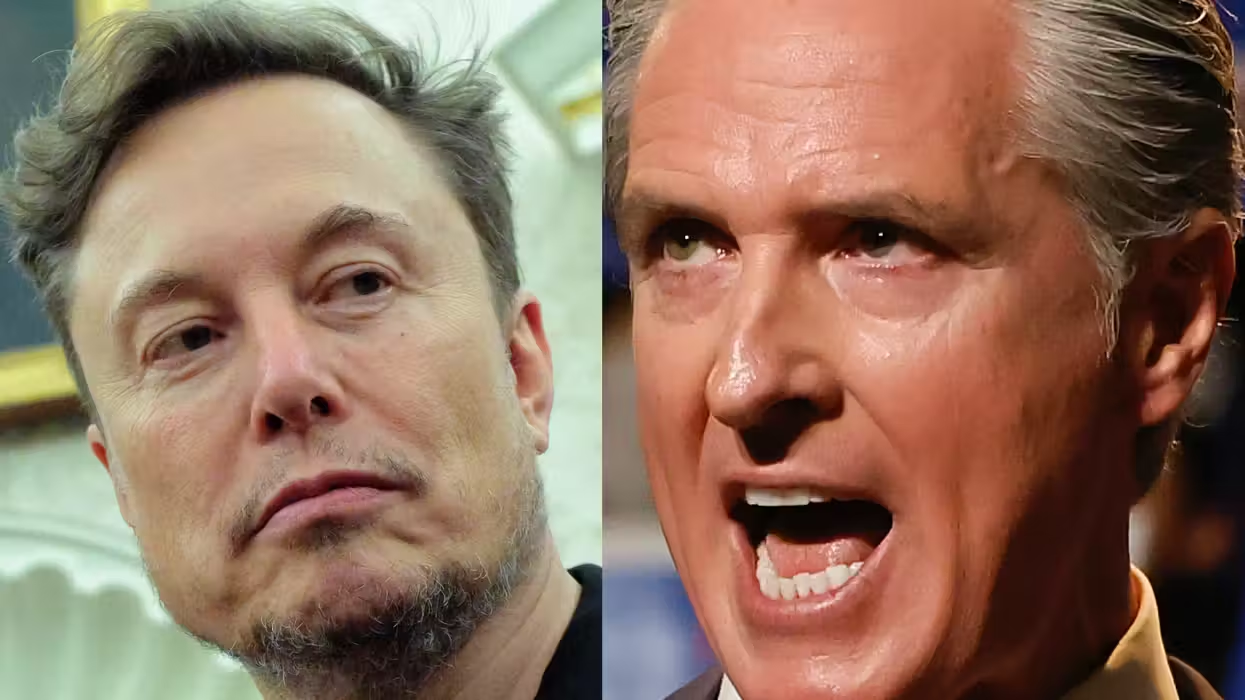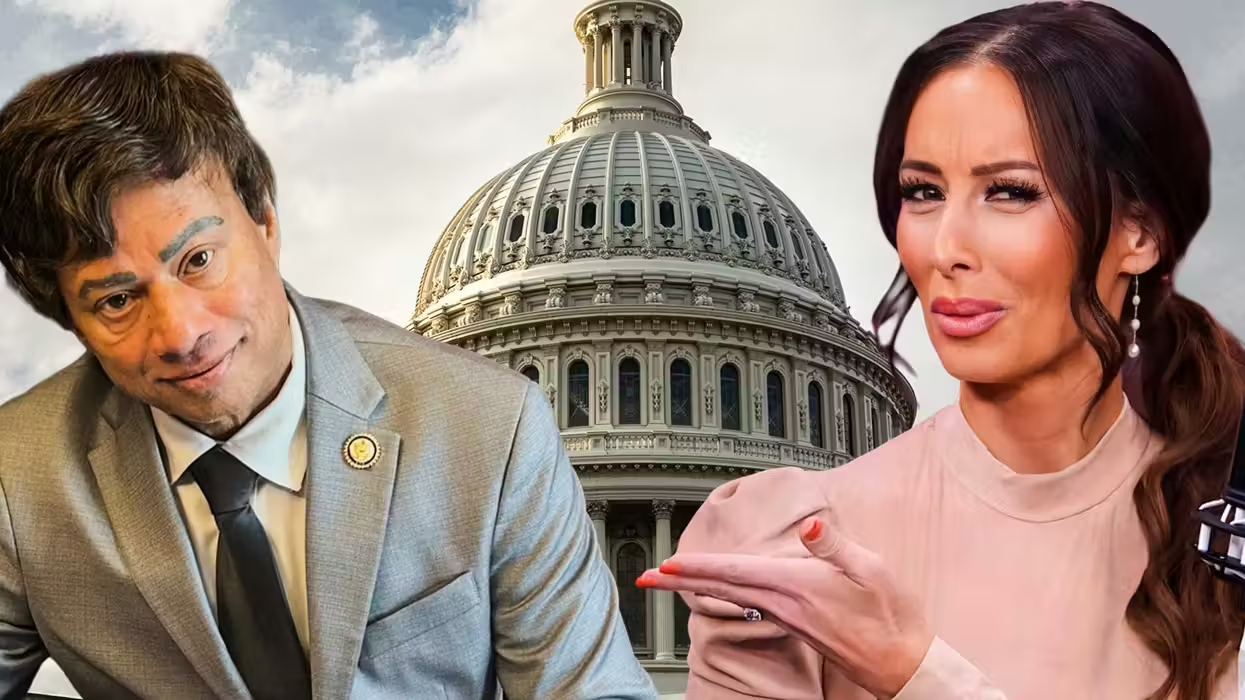© 2025 Blaze Media LLC. All rights reserved.
Tunisia's Islamist Party May Gain Power in the Nation's First Free Elections
October 24, 2011
...wide implications for similar religious parties in the region.
TUNIS, Tunisia (The Blaze/AP) -- Tunisian authorities counted votes Monday in carefully watched elections, with early signs that a once-banned Islamist party is leading in many constituencies in the country that unleashed uprisings across the Arab world.
Tunisia was known for decades for its repressive leadership but also for its progressive legislation on women and families, which secular-leaning Tunisians fear the moderate Islamist party Ennahda would roll back if it takes a commanding number of seats in the new assembly being created by Sunday's elections.
Ennahda believes that Islam should be the reference point for the country's system and laws but maintains that it will respect women's rights and is committed to democracy and working with other parties.
"During the campaign the Islamist party was quite disciplined in saying they will protect human rights, they will protect the rights of women and maintain equality, but in fact this is an open question," said Ricky Goldstein who observed the elections for the New York-based Human Rights Watch. "Their discourse in some areas was vague and ambiguous."
He did, however, pronounce the contests as "a shining example in terms of the conduct of elections," in an interview with Associated Press Television News. "I think we will see the example of Tunisia influence positively the upcoming elections in Egypt."
Tunisia's landmark elections coincided with declarations in neighboring Libya by its new leaders that the country has been liberated from the yoke of longtime leader Moammar Gadhafi. The new leaders also announced plans with a sharply Islamist tone that could rattle their Western backers.
In Tunisia, Radio Mosaique FM posted results from polling stations around the country Monday, with many showing a commanding lead for Ennahda. Officials familiar results elsewhere said the pattern was repeated across the country.
Election commission head Kamel Jendoubi said official results would be released Tuesday afternoon.
Turnout was massive on a day electric with the excitement of Tunisia's first truly free elections in its history, with long lines at polling stations. More than 90 percent of the 4.1 million registered voters, out of a 7.5 million strong electorate, participated, said Boubker Bethabet, Secretary General of the election commission.
Voters were electing a 217-seat constituent assembly that will shape their fledgling democracy, choose a new government and write a new constitution that would pave the way for future elections.
In a surprise second place in many constituencies is the Congress for the Republic party of longtime human rights activist Moncef Marzouki, according to party and electoral officials. Marzouki is known less for his political beliefs than high-profile criticism of the old regime's repression.
Of all the secular parties arrayed against Ennahda in the election, Marzouki's has been the most open to joining a coalition with the Islamist party.
Also a surprise has been the apparent poor showing of the Progressive Democratic Party, the strongest legal opposition group under the old regime, a historic center-left party that has billed itself as the main opponent of Ennahda and defender of secular values.
Preliminary results don't show the party even polling a distant third or fourth in many districts.
Ennahda had been widely expected to perform well, though the key question is whether it would get a majority. Regardless of the result, the party has said it would join a coalition with other parties to ensure a broad-based government.
More than 14,000 local and international observers watched polling stations, including delegations from the European Union and the Carter Center.
Voters included women with headscarves and without, former political prisoners and young people whose Facebook posts helped fuel the revolution.
After 23 years in power, President Zine El-Abidine Ben Ali was overthrown Jan. 14 by a monthlong uprising, sparked by a fruit vendor who set himself on fire in protest of police harassment, then stirred by anger over unemployment, corruption and repression.
The uprising inspired similar rebellions across the Arab world. The autocratic rulers of Egypt and Libya have fallen since, but Tunisia is the first country to hold free elections as a result of the upheaval. Egypt's parliamentary election is set for next month.
President Barack Obama offered congratulations, saying that "less than a year after they inspired the world, the Tunisian people took an important step forward."
An Ennahda victory, especially in a comparatively secular society like Tunisia, could have wide implications for similar religious parties in the region. Considering the fears that center upon these parties and their treatment of women and potentially restrictive governance, all eyes will likely be upon the election results.
Preliminary reports indicate voting went smoothly. But some expressed indifference about the elections out of frustration that life has not improved since the revolution. Tunisia's economy and employment, part of the reason for the revolution in the first place, has only gotten worse since Ben Ali fled to Saudi Arabia because tourists and foreign investors have stayed away.
Want to leave a tip?
We answer to you. Help keep our content free of advertisers and big tech censorship by leaving a tip today.
Want to join the conversation?
Already a subscriber?
Billy Hallowell is a digital TV host and interviewer for Faithwire and CBN News and the co-host of CBN’s "Quick Start Podcast."
Billy Hallowell
Billy Hallowell is a digital TV host and interviewer for Faithwire and CBN News and the co-host of CBN’s "Quick Start Podcast."
more stories
Sign up for the Blaze newsletter
By signing up, you agree to our Privacy Policy and Terms of Use, and agree to receive content that may sometimes include advertisements. You may opt out at any time.
Related Content
© 2025 Blaze Media LLC. All rights reserved.
Get the stories that matter most delivered directly to your inbox.
By signing up, you agree to our Privacy Policy and Terms of Use, and agree to receive content that may sometimes include advertisements. You may opt out at any time.






